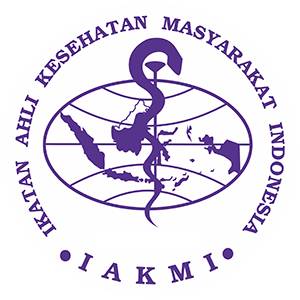Study of Knowledge and Compliance at Muhammadiyah Autonomous Organization (ORTOM) on COVID-19 Prevention
DOI:
https://doi.org/10.30787/gaster.v20i1.784Keywords:
Ortom Muhammadiyah, Knowledge, Compliance, COVID-19Abstract
This study was conducted to determine the knowledge and compliance of the COVID-19 pandemic prevention among cadres of Ortom Muhammadiyah in Surabaya. Methods: This study used a cross-sectional design with 315 respondents in the Muhammadiyah autonomous organization in Surabaya. The inclusion criteria in this study included cadres of Ortom Muhammadiyah living in Surabaya aged ≥ 18.. Result: Overall from the analysis results, it was found that some respondents (64%) had good knowledge, (31%) had sufficient knowledge, and only (5%) had less knowledge. Whereas in compliance, it was found that most of the respondents (72%) had good compliance, (23%) had sufficient compliance, and only (5%) were less compliance. Conclusions: The majority of Muhammadiyah residents in Surabaya have good knowledge and compliance. This shows that the involvement of organizations in relation to handling COVID-19 is very important, especially the Muhammadiyah organization through its various instruments conducting campaigns and efforts to prevent the spread of COVID-19 in the community.
References
Dharmawati, I., & Wirata, I. (2016). Hubungan Tingkat Pendidikan, Umur, Dan Masa Kerja Dengan Tingkat Pengetahuan Kesehatan Gigi Dan Mulut Pada Guru Penjaskes Sd Di Kecamatan Tampak Siring Gianyar. Jurnal Kesehatan Gigi, Vol. 4, hal. 1–5.
Ibtimes.id (2020) Kebijakan Muhammadiyah Selama Masa Pandemi COVID-19. Available at: https://ibtimes.id/ (Accessed: 18 November 2020).
Infocovid19.jatimprov.go.id (2020) PETA SEBARAN COVID-19 JATIM. Available at: http://infocovid19.jatimprov.go.id/ (Accessed: 7 July 2020).
Kowalski, J. et al. (2020) ‘Adherence to safety and self-isolation guidelines, conspiracy and paranoia-like beliefs during COVID-19 pandemic in Poland - associations and moderators’, Psychiatry Research, 294(October). doi: 10.1016/j.psychres.2020.113540.
Mechessa, D. F. et al. (2020) ‘Community ’ s Knowledge of COVID-19 and Its Associated Factors in Mizan-Aman Town,’ International Journal of General Medicine, 13(9), pp. 507–513.
Mubarak, W. (2011). Promosi Kesehatan untuk Kebidanan. In Jakarta: salemba medika.
Nivette, A. et al. (2021) ‘Non-compliance with COVID-19-related public health measures among young adults in Switzerland: Insights from a longitudinal cohort study’, Social Science and Medicine. Elsevier Ltd, 268(August 2020), p. 113370. doi: 10.1016/j.socscimed.2020.113370.
PIMPINAN PUSAT MUHAMMADIYAH (2020) ‘TUNTUNAN DAN PANDUAN MENGHADAPI PANDEMI DAN DAMPAK COVID-19’, pp. 0–12.
Sari, A., Rachman, F., & Dkk. (2020). Perilaku Pencegahan Covid-19 Ditinjau dari Karakteristik Individu dan Sikap Masyarakat. Journal of Chemical Information and Modeling, Vol. 53, hal. 1689–1699.
Smith, L. E. et al. (2020) ‘Factors associated with adherence to self-isolation and lockdown measures in the UK: a cross-sectional survey’, Public Health, 187, pp. 41–52. doi: 10.1016/j.puhe.2020.07.024.
Yaslina, Y., Murni, L., & dkk. (2019). Hubungan Karakteristik Individu dan Dukungan Sosial Dengan Perilaku Pencegahan Stroke Pada Masyarakat Diwilayah Kerja Puskesmas Gulai Bancah. Journal of Chemical Information and Modeling, Vol. 53, hal. 1689–1699.
Webster, R. K. et al. (2020) ‘How to improve adherence with quarantine: rapid review of the evidence’, Public Health. The Royal Society for Public Health, 182, pp. 163–169. doi: 10.1016/j.puhe.2020.03.007.
WHO (2020) ‘Coronavirus disease 2019 (COVID-19) Situation Report – 94’, World Health Organization, 2019(March), p. 2633. doi: 10.1001/jama.2020.2633.













